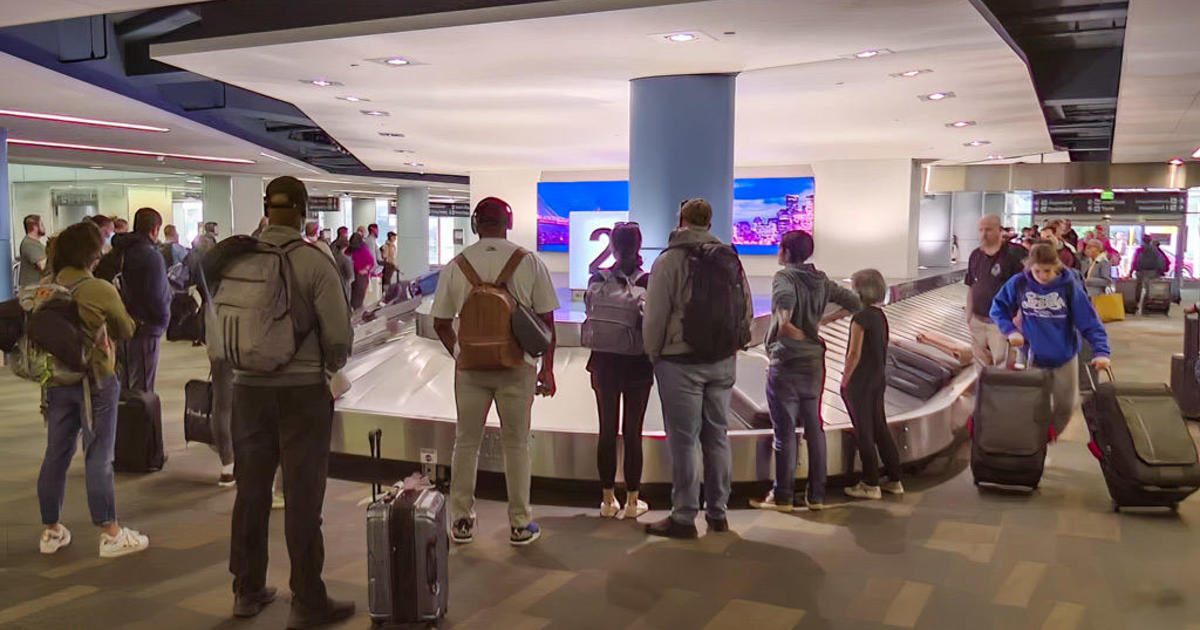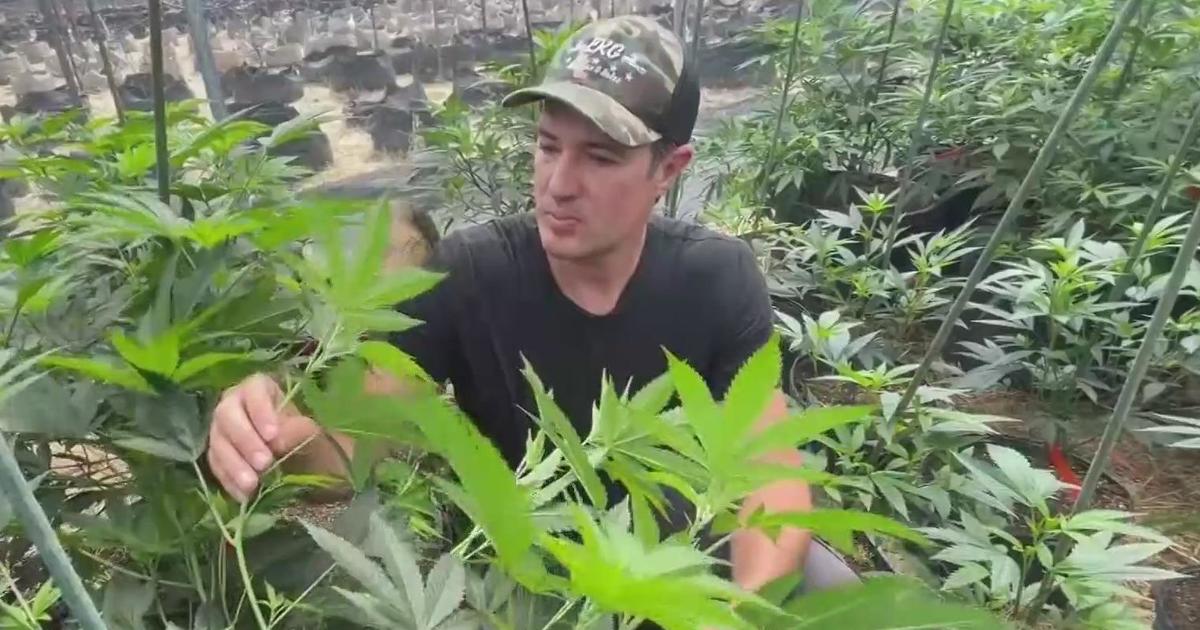AG Sessions Targets Legal Marijuana; Newsom Calls Crackdown Part Of 'War' On California
WASHINGTON (CBS SF & AP) — Attorney General Jeff Sessions is rescinding the Obama-era policy that had paved the way for legalized marijuana to flourish in states across the country, two people with knowledge of the decision told The Associated Press.
Sessions will instead let federal prosecutors where pot is legal decide how aggressively to enforce federal marijuana law, the people said.
California Lt. Governor Gavin Newsom says Sessions action "defies facts and logic" and is part of the Trump administration's "war" on California.
"Today, Jeff Sessions and the Trump Administration destructively doubled down on the failed, costly and racially discriminatory policy of marijuana criminalization, trampling on the will of California voters and a year-long bipartisan implementation process led by Governor Brown and the California Legislature," he wrote.
"This position defies facts and logic, threatens the promise of a safe, stable, and legal regulatory framework being pursued by twenty-nine different states, and continues the Trump Administration's cynical war on America's largest state - and its people and progress - through immigration crackdowns, tax increases, climate policy reversals, health care repeals and now marijuana policing."
Democratic Leader Nancy Pelosi also was critical of the decision.
"Attorney General Jeff Sessions' decision bulldozes over the will of the American people and insults the democratic process under which majorities of voters in California and in states across the nation supported decriminalization at the ballot box," she said.
"Congress must now take action to ensure that state law is respected, and that Americans who legally use marijuana are not subject to federal prosecution," she added.
California Attorney General Kamala Harris also criticized the decision on Twitter:
However, at least one Northern California sheriff applauded U.S. Attorney General Jeff Sessions' decision to end a policy that guided federal authorities to take a hands-off approach to marijuana enforcement.
Siskiyou County Sheriff Jon Lopey said Thursday that he's encouraged by Sessions' actions.
Much of the enforcement of marijuana laws has fallen to rural local authorities in Northern California where most of the crop is grown.
The Siskiyou Board of Supervisors declared a local state of emergency last year and called on Gov. Jerry Brown to help Lopey crack down on a dramatic influx of illegal marijuana farmers.
Lopey had asked Sessions to rescind the policy that guided federal authorities to allow operations to exist if they abided by state law, but to crack down on activities such as trafficking and selling to minors.
The people familiar with the plan spoke on condition of anonymity because they were not authorized to discuss it before an announcement expected Thursday.
The move by President Donald Trump's attorney general likely will add to confusion about whether it's OK to grow, buy or use marijuana in states where pot is legal, since long-standing federal law prohibits it.
It comes days after pot shops opened in California, launching what is expected to become the world's largest market for legal recreational marijuana and as polls show a solid majority of Americans believe the drug should be legal.
While Sessions has been carrying out a Justice Department agenda that follows Trump's top priorities on such issues as immigration and opioids, the changes to pot policy reflect his own concerns. Trump's personal views on marijuana remain largely unknown.
Sessions, who has assailed marijuana as comparable to heroin and has blamed it for spikes in violence, had been expected to ramp up enforcement. Pot advocates argue that legalizing the drug eliminates the need for a black market and would likely reduce violence, since criminals would no longer control the marijuana trade.
The Obama administration in 2013 announced it would not stand in the way of states that legalize marijuana, so long as officials acted to keep it from migrating to places where it remained outlawed and out of the hands of criminal gangs and children.
Sessions is rescinding that memo, written by then-Deputy Attorney General James M. Cole, which had cleared up some of the uncertainty about how the federal government would respond as states began allowing sales for recreational and medical purposes.
The pot business has since become a sophisticated, multimillion-dollar industry that helps fund schools, educational programs and law enforcement. Eight states and the District of Columbia have legalized marijuana for recreational use, and California's sales alone are projected to bring in $1 billion annually in tax revenue within several years.
Sessions' policy will let U.S. attorneys across the country decide what kinds of federal resources to devote to marijuana enforcement based on what they see as priorities in their districts, the people familiar with the decision said.
Sessions and some law enforcement officials in states such as Colorado blame legalization for a number of problems, including drug traffickers that have taken advantage of lax marijuana laws to hide in plain sight, illegally growing and shipping the drug across state lines, where it can sell for much more.
Republican Sen. Cory Gardner of Colorado strongly criticized attorney general's changing of marijuana law enforcement, which would give federal prosecutors more leeway in pursuing marijuana cases.
Gardner said he would fight the move by possibly holding up DOJ confirmations in the Senate.
The decision was a win for pot opponents who had been urging Sessions to take action.
"There is no more safe haven with regard to the federal government and marijuana, but it's also the beginning of the story and not the end," said Kevin Sabet, president and CEO of Smart Approaches to Marijuana, who was among several anti-marijuana advocates who met with Sessions last month. "This is a victory. It's going to dry up a lot of the institutional investment that has gone toward marijuana in the last five years."
Threats of a federal crackdown have united liberals who object to the human costs of a war on pot with conservatives who see it as a states' rights issue. Some in law enforcement support a tougher approach, but a bipartisan group of senators in March urged Sessions to uphold existing marijuana policy. Others in Congress have been seeking ways to protect and promote legal pot businesses.
A task force Sessions convened to study pot policy made no recommendations for upending the legal industry but instead encouraged Justice Department officials to keep reviewing the Obama administration's more hands-off approach to marijuana enforcement, something Sessions promised to do since he took office.
The change also reflects yet another way in which Sessions, who served as a federal prosecutor at the height of the drug war in Mobile, Alabama, has reversed Obama-era criminal justice policies that aimed to ease overcrowding in federal prisons and contributed to a rethinking of how drug criminals were prosecuted and sentenced.
While his Democratic predecessor Eric Holder told federal prosecutors to avoid seeking long mandatory minimum sentences when charging certain lower level drug offenders, for example, Sessions issued an order demanding the opposite, telling them to pursue the most serious charges possible against most suspects.
© Copyright 2018 CBS Broadcasting Inc. All Rights Reserved. This material may not be published, broadcast, rewritten, or redistributed. Bay City News Service contributed to this report.



